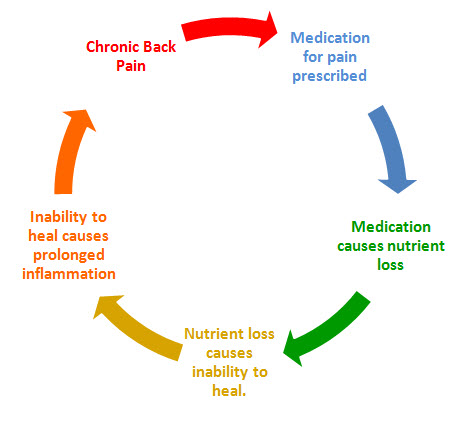Vitamin C (Ascorbic Acid)
Signs & Symptoms of Vitamin C Deficiency:
Dry and splitting hair
Inflammation of the gums (gingivitis)
Rough, dry, scaly skin (hyperkeratosis)
Easy bruising and slow healing
Infertility
Histamine elevations
Easy bruising
Spontaneous nosebleeds
Weakened enamel of the teeth
Swollen and painful joints
Gallstone formation
Anemia
Increased susceptibility to infection
Weight gain (due to metabolic slowing)
Weight loss
Vitamin C has been shown to be beneficial in the following conditions:
Cancer
Cystic fibrosis
Cardiovascular disease and atherosclerosis
Arthritis, especially osteoarthritis
Recovery from surgery
Multiple Myeloma
Certain immuno suppressed states, supports immune system function and
killing function of certain white blood cells called phagocytes
Bone health (osteoporosis, osteopenia, etc.)
May help reduce cholesterol and blood pressure
Prevention of cataracts and macular degeneration in combination with other
vitamins
Diabetes
Dementias and depression
Gum disease (gingivitis)
Glaucoma
Slowing the progression of Parkinson’s disease
Allergy related conditions
Reducing the adverse effects of sun exposure
Alleviating dry mouth, especially related to medications that cause dry mouth
Healing of burns and wounds
Scurvy
Drugs/Medications that deplete or interfere with Vitamin C:
Aspirin and other NSAIDS
Birth control pills (oral contraceptives and hormone replacement)
Cyclosporine
Corticosteroids and glucocorticoids
Furosemide (Lasix), and other diuretics such as caffeine
Heparin and coumadin (blood thinners)
Laboratory testing to detect Vitamin C deficiency:
Lymphocyte functional tests and plasma tests commonly used for Vitamin C
status, but the reliability is in question.
No definitive test exists that consistently and reliably detects vitamin C
deficiency.
Food Sources:
High: Acercola cherries, broccoli, brussel sprouts, collards, guava, rose hips,
black currant
Moderate: Cabbage, spinach, citrus fruits, strawberries, cauliflower, chives,
green peppers (jalapenos), red peppers, watermelon, tomatoes, kiwi, mango,
cranberries, potatoes, winter squash, raspberries, blueberries, pineapple
References:
Shils ME, et al, ed. Modern Nutrition in Health and Disease 9th Edition.
Lippincott Williams & Wilkins, 1999.
Garrison R Jr, Somer E. The Nutritional Desk Reference 3rd Edition. Keats,
1995.
Kirschmann GJ, Kirschmann JD. Nutrition Almanac 4th Edition. McGraw Hill,
1996.
Wardlaw GW, Insel PM, Seyler MF. Contemporary Nutrition Issues & Insights.
Mosby, 1992.
Who else wants a natural wholistic way to detox?
Signs & Symptoms of Vitamin C Deficiency:
Dry and splitting hair
Inflammation of the gums (gingivitis)
Rough, dry, scaly skin (hyperkeratosis)
Easy bruising and slow healing
Histamine elevations
Easy bruising
Spontaneous nosebleeds
Weakened enamel of the teeth
Swollen and painful joints
Gallstone formation
Anemia
Increased susceptibility to infection
Weight gain (due to metabolic slowing)
Vitamin C has been shown to be beneficial in the following conditions:
Cancer
Cystic fibrosis
Cardiovascular disease and atherosclerosis
Arthritis, especially osteoarthritis
Recovery from surgery
Multiple Myeloma
Certain immuno suppressed states, supports immune system function and
killing function of certain white blood cells called phagocytes
Bone health (osteoporosis, osteopenia, etc.)
May help reduce cholesterol and blood pressure
Prevention of cataracts and macular degeneration in combination with other
vitamins
Diabetes
Dementias and depression
Gum disease (gingivitis)
Glaucoma
Slowing the progression of Parkinson’s disease
Allergy related conditions
Reducing the adverse effects of sun exposure
Alleviating dry mouth, especially related to medications that cause dry mouth
Healing of burns and wounds
Scurvy
Drugs/Medications that deplete or interfere with Vitamin C:
Aspirin and other NSAIDS
Birth control pills (oral contraceptives and hormone replacement)
Cyclosporine
Corticosteroids and glucocorticoids
Furosemide (Lasix), and other diuretics such as caffeine
Heparin and coumadin (blood thinners)
Laboratory testing to detect Vitamin C deficiency:
Lymphocyte functional tests and plasma tests commonly used for Vitamin C status, but the reliability is in question. No definitive test exists that consistently and reliably detects vitamin C deficiency.
Food Sources:
High: Acercola cherries, broccoli, brussel sprouts, collards, guava, rose hips, black currant
Moderate: Cabbage, spinach, citrus fruits, strawberries, cauliflower, chives, green peppers (jalapenos), red peppers, watermelon, tomatoes, kiwi, mango, cranberries, potatoes, winter squash, raspberries, blueberries, pineapple
References:
- Shils ME, et al, ed. Modern Nutrition in Health and Disease 9th Edition. Lippincott Williams & Wilkins, 1999.
- Garrison R Jr, Somer E. The Nutritional Desk Reference 3rd Edition. Keats, 1995.
- Kirschmann GJ, Kirschmann JD. Nutrition Almanac 4th Edition. McGraw Hill,1996.
- Wardlaw GW, Insel PM, Seyler MF. Contemporary Nutrition Issues & Insights. Mosby, 1992.
















